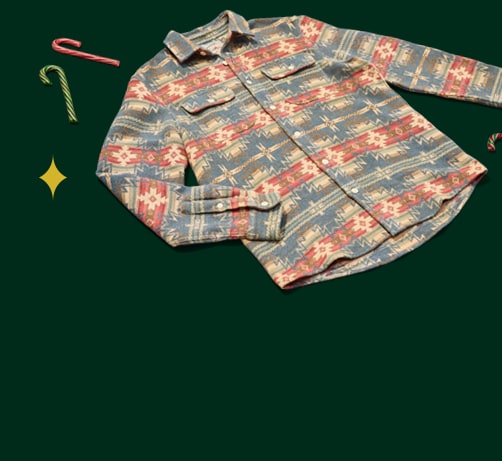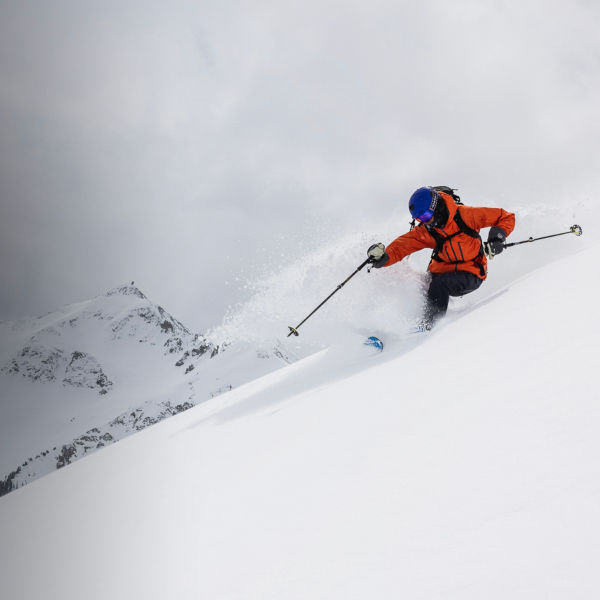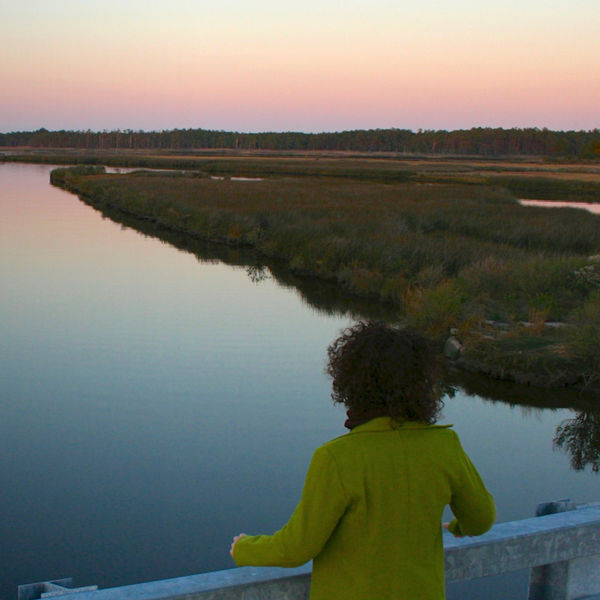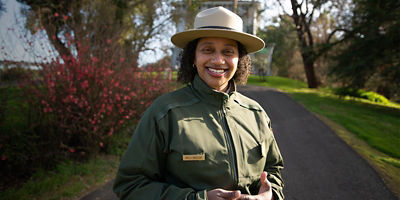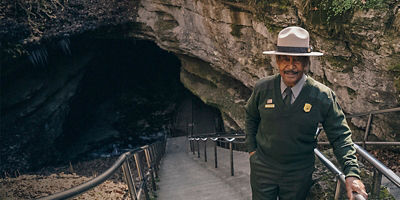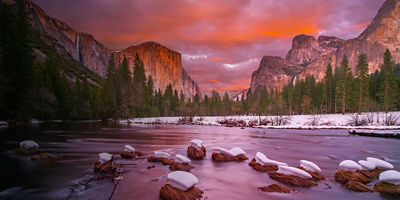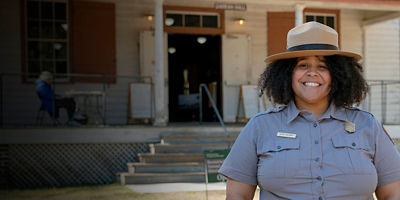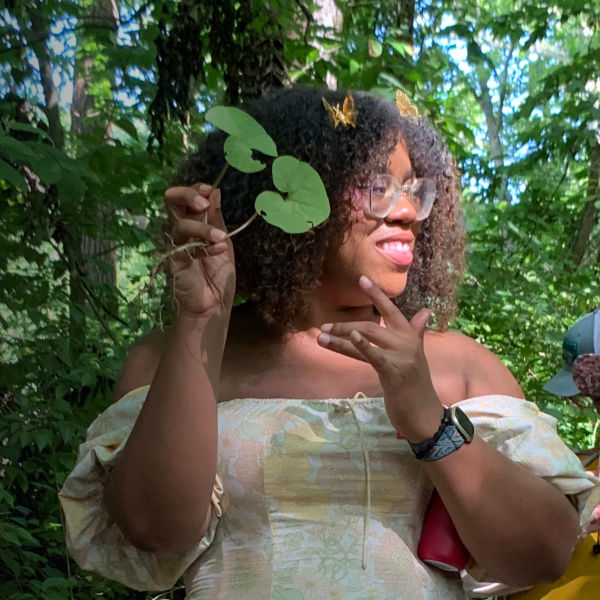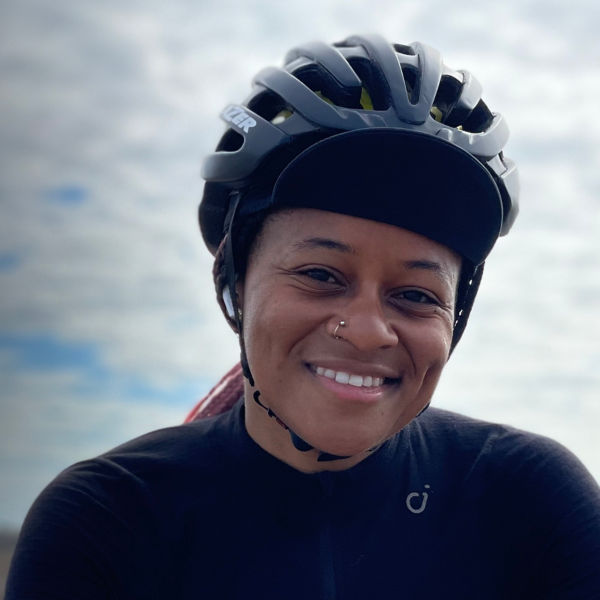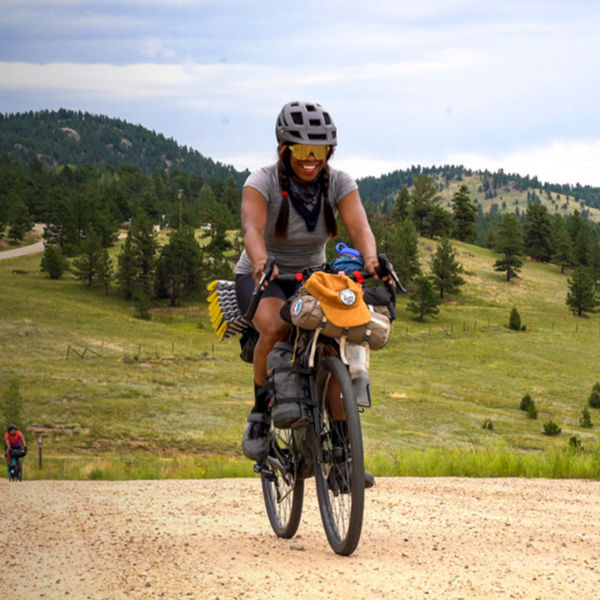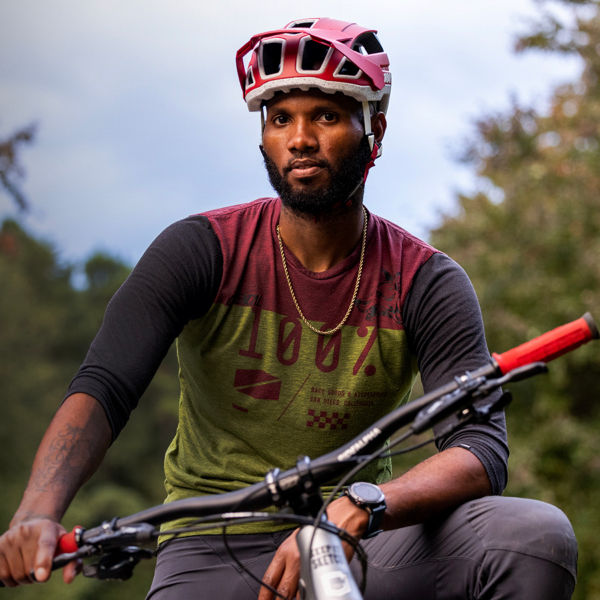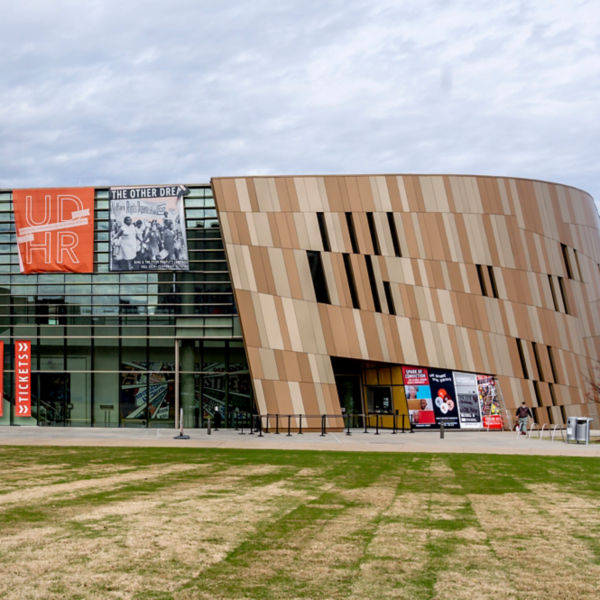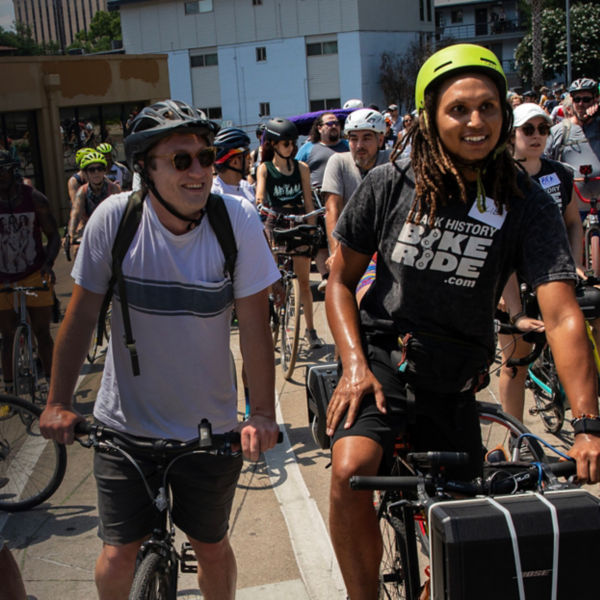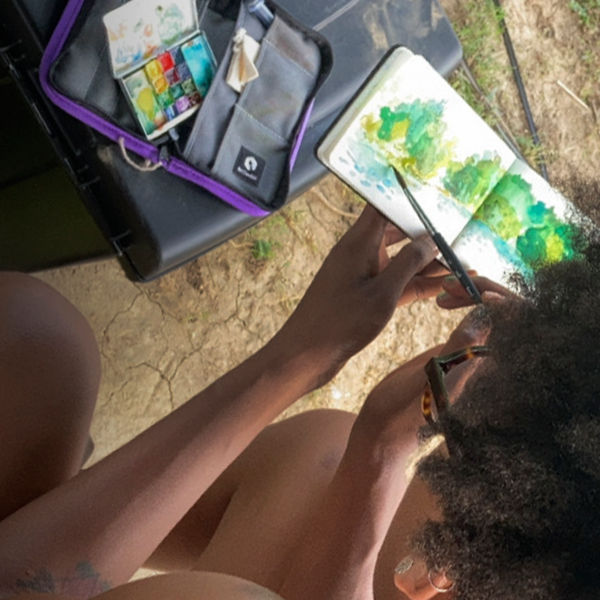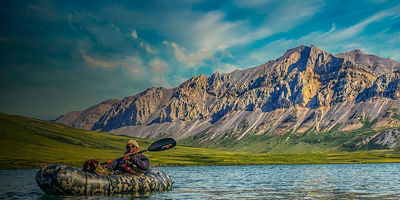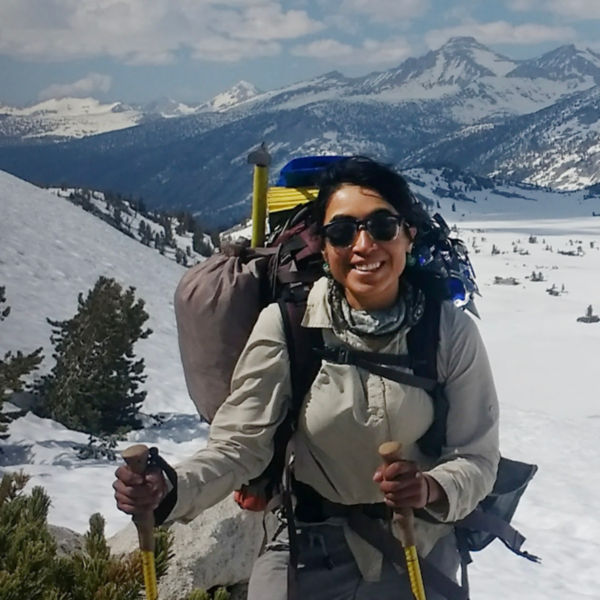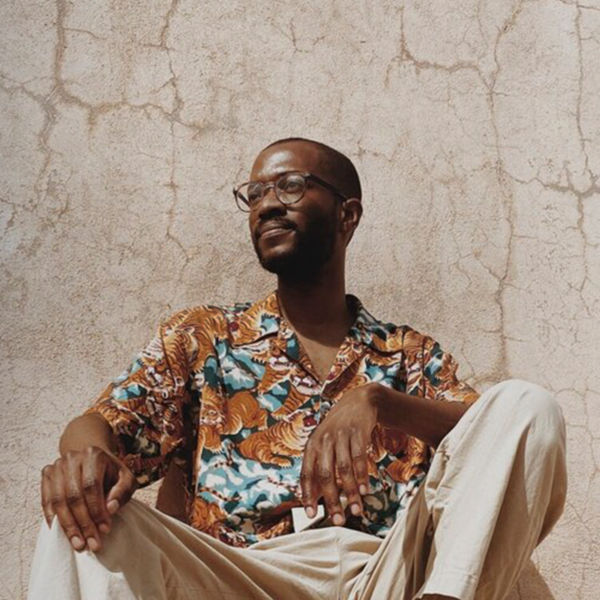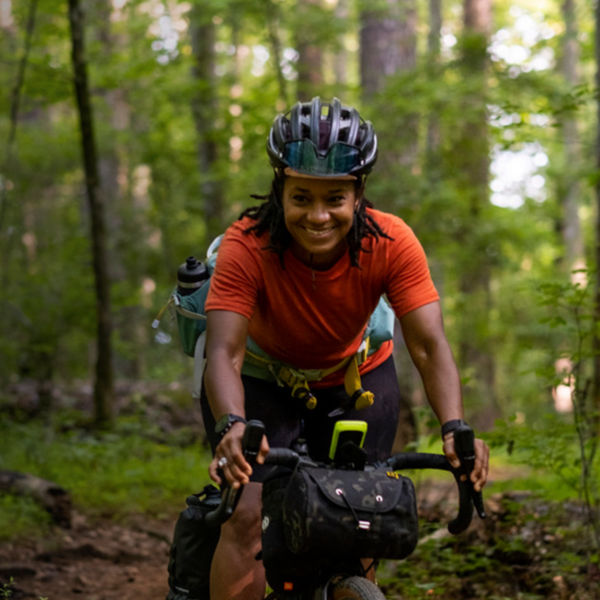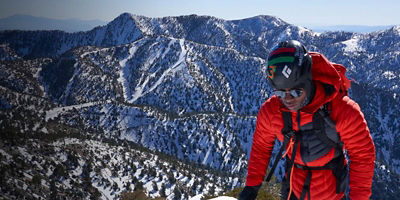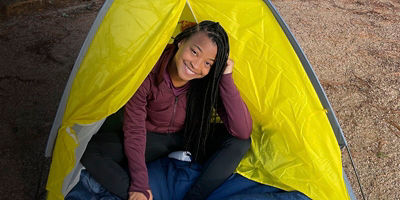PUBLIC LANDS: Every photo of you online shows you wearing a cycling jersey, a helmet and a big smile. How much of that smile is your personality, and how much is due to the fact that you’re on a bike?
BERTIE FIELDS: (Laughs) I would say it’s probably equal. I’m a very upbeat and optimistic person.
Black Girls Do Bike Columbus now has more than 800 members. Did you ever think it would get this big?
No, because when I would be riding on the trails, looking around, I would see lots of people riding on the trails except for Black women, except for my own group of friends. You don’t know that people ride, but then social media is getting it out there. Then we started this group and we are growing steadily.
How have you been received?
I think people are noticing. Our name is Black Girls Do Bike…that gets a lot of attention and a lot of commentary. We get a lot of comments from the majority population, ‘We love your jerseys.’ I feel like we’ve been embraced. There’s been a big difference since 2014. A big difference where (then) I would just see people of color occasionally. Now it would be unusual not to see a person of color.
You’re a nurse. You must think about health disparities and the health benefits of cycling.
Yes. Right now (in January), we are doing Zooms. We try to encourage ‘cyclists are made in the winter’—the importance of weight-bearing exercise, the importance of fitness so you’re not struggling in April. The appropriate diet, hydrating. We had one member who lost 25 pounds (last) year. Not all cyclists are thin. They have the mantra, ‘Oh, I rode 50 miles today, look at what I can eat.’ We’re pro health, pro fitness, pro managing weight. Exercise is good for all of that.
And as a nurse whose passion is healthcare disparities, especially as it relates to cancer, access to safe fitness activities can be challenging. We try to help members find good bikes on Facebook or the (local bike) co-ops. People don’t need to buy $100 kits.
During the season, what kinds of rides do you do as a group?
We choose a place where people can opt to ride a trail and where people can ride the road. Most of our rides start at Three Creeks Metro Park. We can ride around Groveport, (Rickenbacker) airport, and country roads surrounding there. Typically, we do 20 to 30 miles during the week. On the weekends we do longer rides. We also do social rides. One of the rides we do is to Granville, Ohio, and have breakfast and turn around.
You have a long history with Pelotonia, both individually and with Black Girls Do Bike. Tell me about that.
I ride Pelotonia every year. Last year, I had a great time riding. When you ride in a group, you go faster and farther. Our Black Girls Do Bike team—last year was the second year—has raised over $46,000 in two years. As an oncology nurse, it’s sort of easy to fundraise, and I just do it via Facebook. I personally have raised over $20,000. This year, we’re trying to get 50 riders doing 57 miles (which requires a $1,500 fundraising commitment). We’re trying to have a Pelotonia supergroup—uniting together other cycling groups, including BGDB, Steady Pedaling, Columbus Blackstar Cycling Group, Pickerington Bicycle Club, Major Taylor Cycling Club Columbus, MTCC Wolfpack, Trailblazers, and Ride 4 Respect Cycling.
Many of the BGDB rides also have a fundraising component, supporting [youth development organization] Remember Us Urban Scouts through their signature ride as well as Bike the Cbus (Columbus’s original city-wide ride).
How is Columbus doing in terms of cycling access? What would you like to see going forward?
We are improving. We’re not Amsterdam. With Vision Zero and other initiatives, we are getting better. I’d like to have more businesses around the bike trails and to have a bike weekend. Bike the Cbus has had an event every Labor Day. To have a whole bike weekend—a ride on Friday, another ride and a huge vendor fair and education and advocacy on Saturday—we could have something big.
Are some of your closest friends through Black Girls Do Bike?
Yes, they are. It’s been great. I’ve gotten great friends from riding…you’re not going to do it if you’re not welcomed or if you don’t feel comfortable.
What is the key to creating a diverse and inclusive group where all feel comfortable and welcomed?
We support our rides, we have leads and sweeps, whether you are on the trail or the road, for no-drop rides. We ask people what their goals are, and help them to attain them. We plan 25-, 50-, 60- and 100-mile rides that we fully support with SAG [support and gear vehicle] and food, provided by the sheroes and members. We don’t drop anyone, so they don’t have to fear group rides; they are never alone.
And I will say that we are supportive, encouraging, and inclusive. We provide recognition at the end of the year for people who achieved their first 25 miles, 50, 60 and 100 miles. We recognize our leads and sweeps and those who show up every week. We are nurturers.


